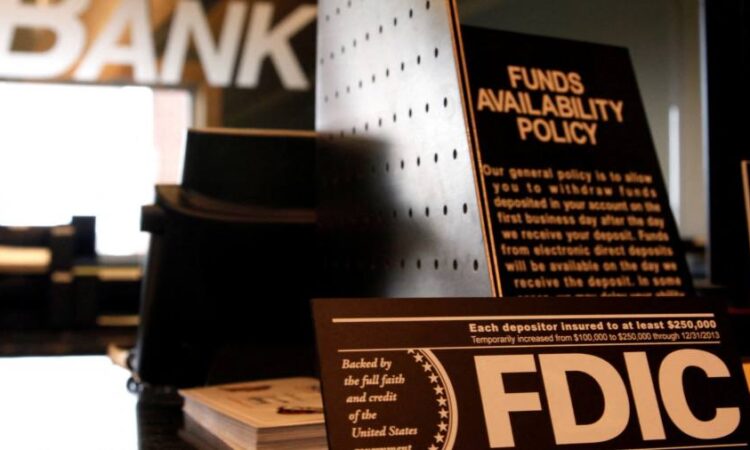
The biggest US banks will be hit with nearly $16bn in extra fees over two years under a Federal Deposit Insurance Corporation plan to recover its losses associated with rescuing Silicon Valley Bank and Signature Bank in March.
The FDIC on Thursday proposed that roughly 113 banks would be subject to a so-called “special assessment”. Larger lenders whose assets total at least $50bn would pay more than 95 per cent of the total cost. The figure includes both behemoths such as JPMorgan Chase and Bank of America as well as the regional lenders that have been at the heart of the US’s recent banking turmoil.
The proposal spares the vast majority of the US’s 4,500 FDIC-insured banks, and the fees are computed based on banks’ uninsured deposits on the grounds that $15.8bn of the $18.5bn cost of the SVB and Signature losses were due to the coverage of accounts larger than the $250,000 limit, and most of those accounts are in large banks.
Banks with assets below $5bn would be spared the fee. This is sure to please the influential trade association for that part of the sector, the Independent Community Bankers of America, which has been arguing for a distinction between big and small banks since SVB started to wobble.
The FDIC said the payments would not begin until the second quarter of 2024 and would be collected over two years, translating to an annual rate of 0.125 per cent of each bank’s uninsured deposits.
FDIC officials on Thursday said they could cut short the collection period or extend it depending on when the total losses are covered. The regulator estimated that if the entire amount had come due in a single quarter, it would result in an average 17.5 per cent hit to income for the affected banks. Officials said they expected banks to pay it off immediately.
The total cost of rescuing SVB and Signature depositors has come down to $18.5bn from more than $20bn, largely because the FDIC now expects to recover more from selling off the SVB assets than previously anticipated. BlackRock is handling much of those sales.
FDIC officials on Thursday said the loss estimates would be periodically adjusted as assets are sold, liabilities are met or receivership-related expenses accrue.
The special assessment comes just two months after the FDIC, the Federal Reserve and Treasury department were forced to step in to ward off a more pronounced bout of banking-sector contagion after SVB and Signature suffered runs from depositors. Over a marathon weekend of negotiations, authorities invoked a “systemic risk” exception for the two lenders, which enabled the FDIC to guarantee all deposits.
More recently, an emergency deal was brokered between the FDIC and JPMorgan over First Republic.
There will be a 60-day comment period before the special assessment rule is finalised.





